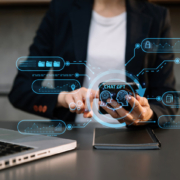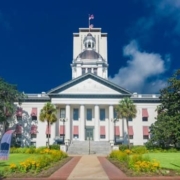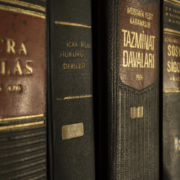Just like everyone, The Orlando Law Group wants to explore the capabilities of ChatGPT and other artificial intelligence technology coming out. But we are attorneys and we approach everything with caution.
With any new technology, there are going to be pitfalls. We certainly watched closely as the artificial intelligence system provided fake cases that were used in court pleadings in New York. We are also watching how businesses are starting to use ChatGPT in a wide range of uses, everything from marketing language to creating policy documents to building sales plans.
From what we have seen, the technology is fantastic for searching for information, but there are obstacles that come that may present legal issues for your and your business if you use them.
The Orlando Law Group can help your business with any legal issue that might arise, including ones dealing with new technologies. As a full-service firm with attorneys helping businesses and individuals, we help businesses in Orlando, Winter Garden, Altamonte Springs, St. Cloud, Kissimmee, Sanford and throughout Central Florida.
What is ChatGPT?
Late in 2022, OpenAI unveiled its latest project, ChatGPT. This new tool can research and compose articles, papers and more on just about any subject.
For instance, we asked it “What is ChatGPT in two paragraphs?” In a matter of seconds, it responded with:
ChatGPT is a state-of-the-art language model developed by OpenAI. It represents the cutting-edge in natural language processing and generation technology. Built upon the GPT-3.5 architecture, ChatGPT has been trained on an extensive corpus of diverse and high-quality text data, enabling it to understand and generate coherent responses to text-based prompts. The model utilizes a transformer architecture, which allows it to capture long-range dependencies and contextual relationships between words and sentences.
With ChatGPT, users can engage in interactive and dynamic conversations with the model, making it a versatile tool for a range of applications. It can serve as a chatbot or virtual assistant, providing human-like responses and assistance in various domains. It can also be used for content generation, translation, and aiding in research tasks. While ChatGPT exhibits remarkable language understanding and generation capabilities, it’s important to exercise caution and verify information obtained from the model, as it may occasionally produce inaccurate or misleading responses. Nonetheless, ChatGPT represents a significant advancement in the field of natural language processing and is poised to shape the future of human-computer interaction.
Maybe we should have asked it for a simple definition…
What could go wrong?
As with any new technology, there are too many possibilities for something to go wrong that we can not possibly see every legal issue that might arise in the future and there is a strong possibility that legislation might affect those issues.
But for now, there are a few things we think could cause legal issues.
- Copyrighted material:
Every business should be very protective about their copyright materials and be careful not to use copyrighted material. ChatGPT could create issues for the user – and the copyright holder.
Bloomberg Law wrote a tremendous piece on this subject, but the central aspect on copyright issues is what role a person plays.
Late last year, the U.S. Copyright Office issued the following: The Human Authorship Requirement – The U.S. Copyright Office will register an original work of authorship, provided that the work was created by a human being. The copyright law only protects “the fruits of intellectual labor” that “are founded in the creative powers of the mind.” Trade-Mark Cases, 100 U.S. 82, 94 (1879).
Basically, this says if the material is determined to be an output of a computer, then it is not eligible for copyright protection. Of course, that is subject to interpretation too. Does the prompt given to ChatGPT constitute “human authorship?” That is still to be determined.
What about your copyrighted material? After all, your words, your lyrics, your designs are most likely in the public domain and could be used by ChatGPT. In that case, it is somewhat based on traditional laws. Did the user plan to make money off the copyrighted materials? If so, you might have a case.
- Trademarks and licensing
In this case, it is fairly straightforward. While artificial intelligence is very good at utilizing photographs and images, you simply can not do that in any marketing aspect. In most cases, the technology will only use this sort of image – logos, photos, etc. – if prompted by the user.
So, as a rule of thumb, just do not use celebrities, brands, and logos when you ask ChatGPT.
- Proprietary and protected data
Nearly every business takes great strides to protect data, like customer credit cards. medical records or proprietary algorithms. And any company that deals with that type of data fully understands the amount of and the creativity of cyber-attacks can be overwhelming.
Unfortunately, AI and ChatGPT expose other avenues for criminals to exploit. For instance, you might input customer information into your chatbot program to help it answer questions better. That might have been secure a year ago, but now that could be found through new technology and used elsewhere – and publicly.
- Check your facts
Finally, we come back to the attorney who submitted fake cases provided by ChatGPT in court documents. The issue is the attorney assumed it was right.
Most businesses would not see something on Twiiter and claim it is a fact in their marketing or their proposals without verifying first. The same rule applies to ChatGPT and any artificial intelligence. Check your sources because at best, you may look foolish, but at worst, you could be found liable for false advertising, statements and more.
The Orlando Law Group is starting to see how these technologies can be applied and improve our legal research, but our attorneys understand the best computers still cannot listen to you and your needs and develop cases or defenses based on your unique situation.
That is our specialty. A full-service law firm with attorneys who are involved with you, care for you and advocate for you.
The attorneys at The Orlando Law Group represent clients in business law, copyrights, trademarks and technology in Orlando, Waterford Lakes, Altamonte Springs, Winter Garden, Lake Nona, St. Cloud, Kissimmee, and throughout Central Florida.
If you have questions about anything discussed in this article or other legal matters, give our office a call at 407-512-4394 or fill out our online contact form to schedule a consultation to discuss your case. We have an office conveniently located at 12301 Lake Underhill Rd, Suite 213, Orlando, FL 32828, as well as offices in Seminole, Osceola and West Orange counties to assist you.
The articles on this blog are for informative purposes only and are no substitute for legal advice or an attorney-client relationship. If you are seeking legal advice, please contact our law firm directly.









